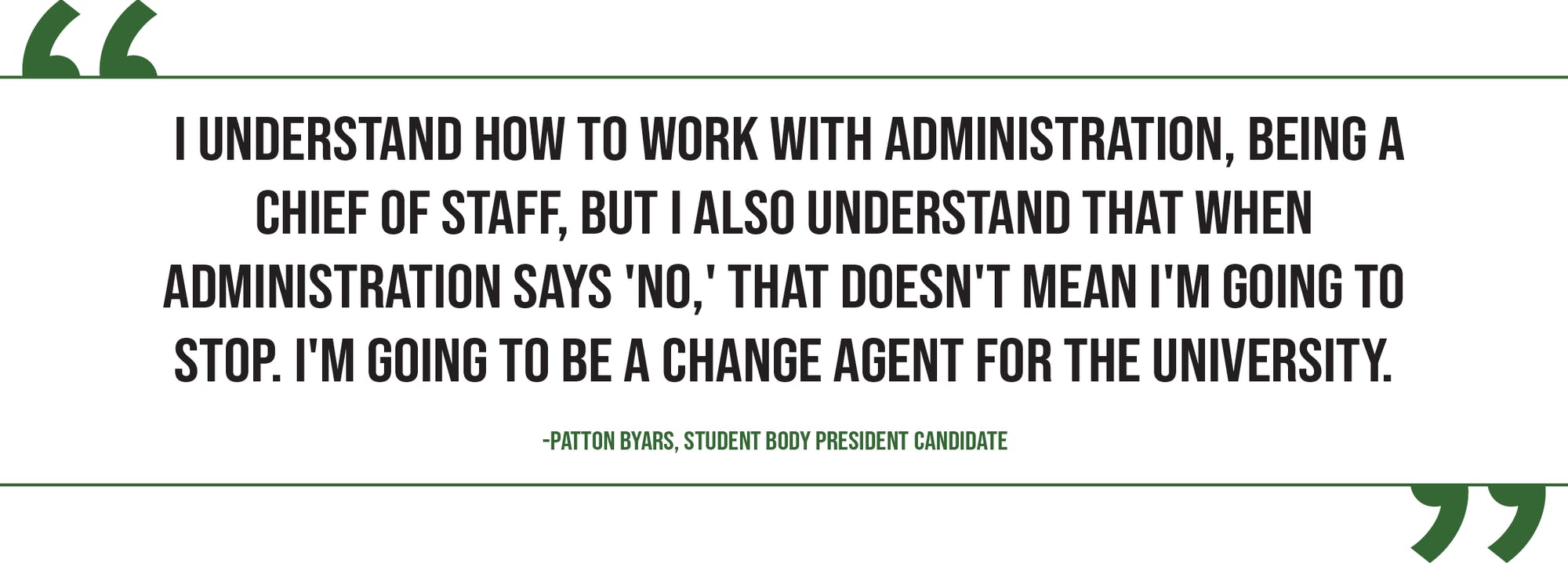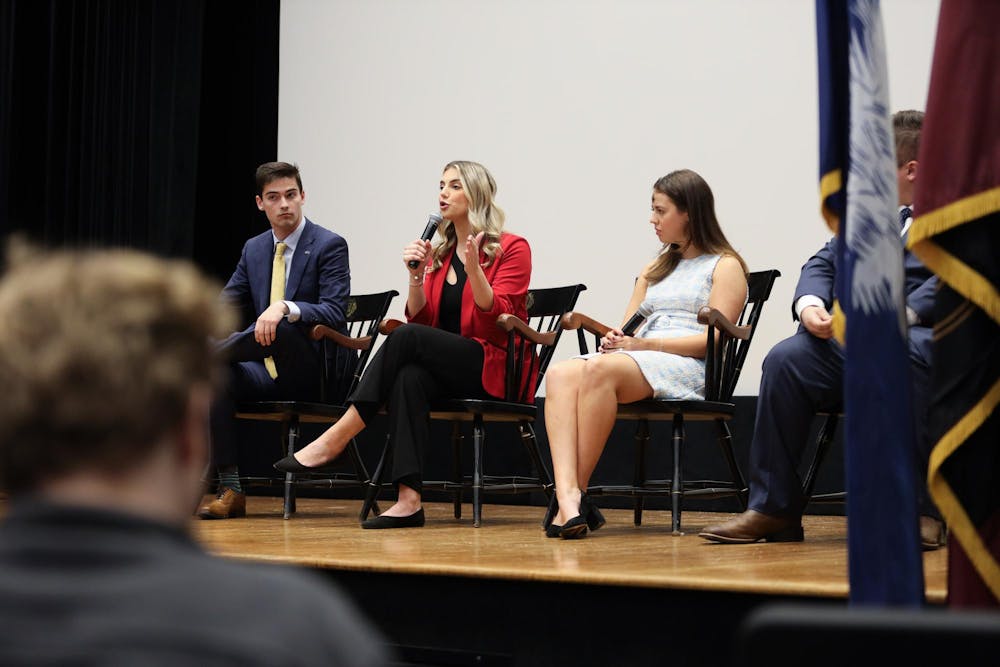This year's Student Government executive candidates aspire to bring change to campus by improving safety, infrastructure and Wi-Fi, but due to the organization's intangible promises and internal problems, it will be difficult for them to accomplish these goals.
The way funds have been mismanaged this year has shown some of the incompetency within the organization.
With more than two months left in the spring 2024 semester, Student Government has almost completely run out of funds that it can allocate to student organizations. This is the second consecutive year that this complication has occurred.
Of the $185,000 budget it received at the beginning of this fiscal year, Student Government distributed at least $149,000 to student organizations just over the course of the fall semester. It was proposed at the end of January that spending limits would be capped at $10,000 per fiscal year for each organization, but this was after at least four organizations received more than that budget.
Former speaker pro tempore, Ian Herd, stepped down from his position in November because he disagreed with how the money was being managed. The financial committee displayed a "lack of responsibility" when pushing financial legislation, he said.
Student Government needs to be more rational when making financial decisions. Allocating funds to student organizations is one of its primary responsibilities. If the organization can't fix these recurring financial issues, how is it going to effectively serve the student body?
In addition to these financial problems, all candidate positions this year are uncontested, which means there isn’t really any point in students voting in the election. This reduces the student body's interest in voting for future elections and eliminates the option for students to vote on which platform they think is the best. They are instead given one option, whether they agree with the goals of the candidate or not.
The Student Government election process also seems to be getting more and more streamlined each year.
The presidents who have been elected over the past two years have worked in their preceding president's office. The current Student Government presidential candidate, Patton Byars, worked as chief of staff for the two former presidents, Emmie Thompson and Reedy Newton. And Thompson worked as chief of staff in the executive cabinet of Newton's office before she was elected as president.
The presidential candidates who have worked in previous president's cabinets have the upper hand in these elections. This discourages other non-presidential cabinet members from running in the election because the outcome of their winning is highly unlikely. Thus, the streamlining occurring in Student Government is limiting the candidate options students can vote for.
The candidates' campaign platforms this year have promised hefty goals — such as improving campus Wi-Fi, infrastructure and parking — without outlining any concrete plans for how to accomplish them.
"You can't be a successful student without consistent and reliable Wi-Fi," Byars said. "So that's one thing I'm going to do. I understand how to work with administration, being a chief of staff, but I also understand that when administration says 'No,' that doesn't mean I'm going to stop. I'm going to be a change agent for the university."

Although Byars claims he wants to resolve campus Wi-Fi issues, repetitively asking administration to take action as a sole solution to this problem isn't a reliable plan.
Despite not having reliable plans for improving Wi-Fi, vice presidential candidate Courtney Tkacs has proposed a way to advocate for more upperclassman housing on campus.
"I work with the Leadership and Service Center. We have a tracker of everybody that calls us and voices their concerns about off-campus living. I would bring that to administration and let them see how many students do want to live on campus and just urge them to put more rooms aside," Tkacs said.
Although this appears to be a step in the right direction of advocating for more upperclassman housing, Tkacs' plan still relies too heavily on having administration listen to students' concerns from Student Government.
In order for Student Government to be more effective this year, some real changes need to be made to help resolve the internal issues that persist within the organization.
Student Government leaders need to hold themselves accountable and make more tangible plans to resolve the issues they see on campus. They need to forge better relationships with the student body and faculty members in order to understand what specific problems persist in the USC community and provide realistic solutions.

